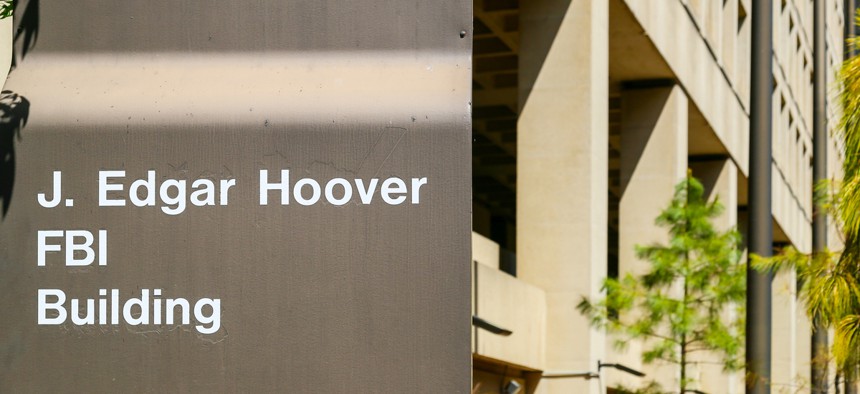The Best Way to Bring a State or Local Public Corruption Tip to the FBI’s Attention

The FBI headquarters in Washington, D.C. Shutterstock
You could dial 1-800-CALL-FBI. But there’s a better way.
BALTIMORE — While the FBI can launch a public corruption investigation for a multitude of reasons, a federal inquiry into a city hall, legislature, school district or other agency can start as a simple hunch by somebody who notices an action by an official, colleague or contractor that seems unusual or out of place. State and local government employees are often in the best place to detect potentially illegal activity or flag something overtly unlawful, like a bribe.
But those hunches that lead to the uncovering of official wrongdoing first have to get on the FBI’s radar screen. That can be difficult for a variety of reasons, including the risks people take when reporting malfeasance by powerful officials who are often pillars in their communities.
Last week at the International City / County Management Association’s annual conference in Baltimore, an FBI supervisory special agent who oversees public corruption investigations in the Cincinnati field office, discussed a handful of public corruption cases in Ohio and provided insights to a crowded conference room of city and county managers about the bureau’s work.
“We can’t do this work without the help from people like you,” said Jeff Williams of the FBI’s field office in Cincinnati, which has jurisdiction over the southern half of Ohio, including the state capital in Columbus.
“You can be involved as much or as little as you want,” Williams said of would-be tipsters.
But those with potentially important information for investigators first have to reach the right person at the FBI.
Williams, who joined the FBI in 1999, said that calling the national tip line, 1-800-CALL-FBI, can sometimes add an unnecessary step in the process. While the bureau’s national call center, based in West Virginia, will relay information to the appropriate field office, he said calling a local FBI field office directly can ensure information makes it to the right person.
Williams said you want to ask, when calling: “Who is the public corruption supervisor? That’s who you want to talk to. … They’re the one who can take your information quietly and confidentially.”
The FBI, he said, appreciates the sensitivity of the information and risks involved in bringing information about bad actors in state and local governments forward. “We’re not going to make it a public spectacle.”
Michael Grass is Executive Editor of Government Executive’s Route Fifty and is based in Seattle.
NEXT STORY: Should Congress Regulate Online Sports Betting?






